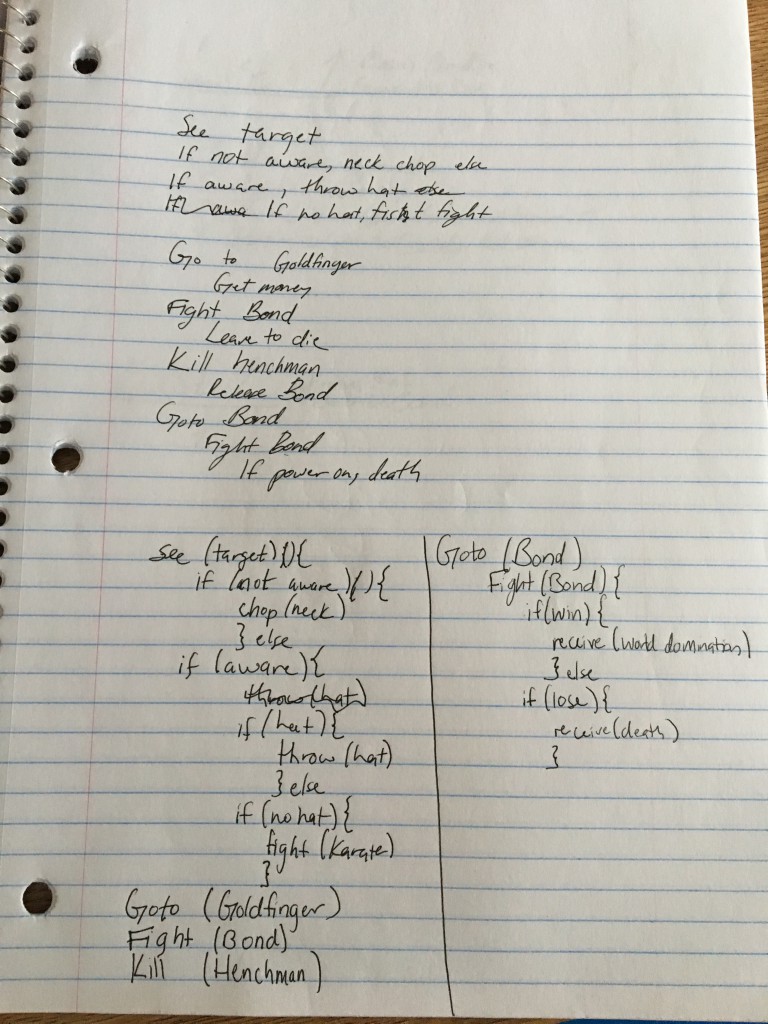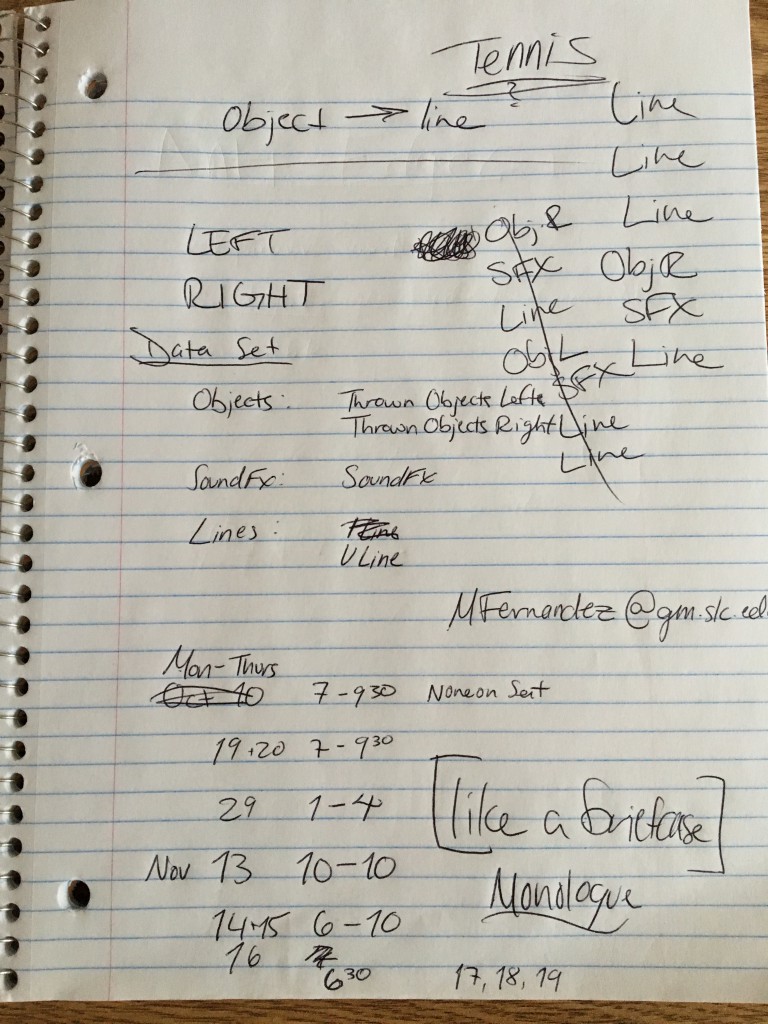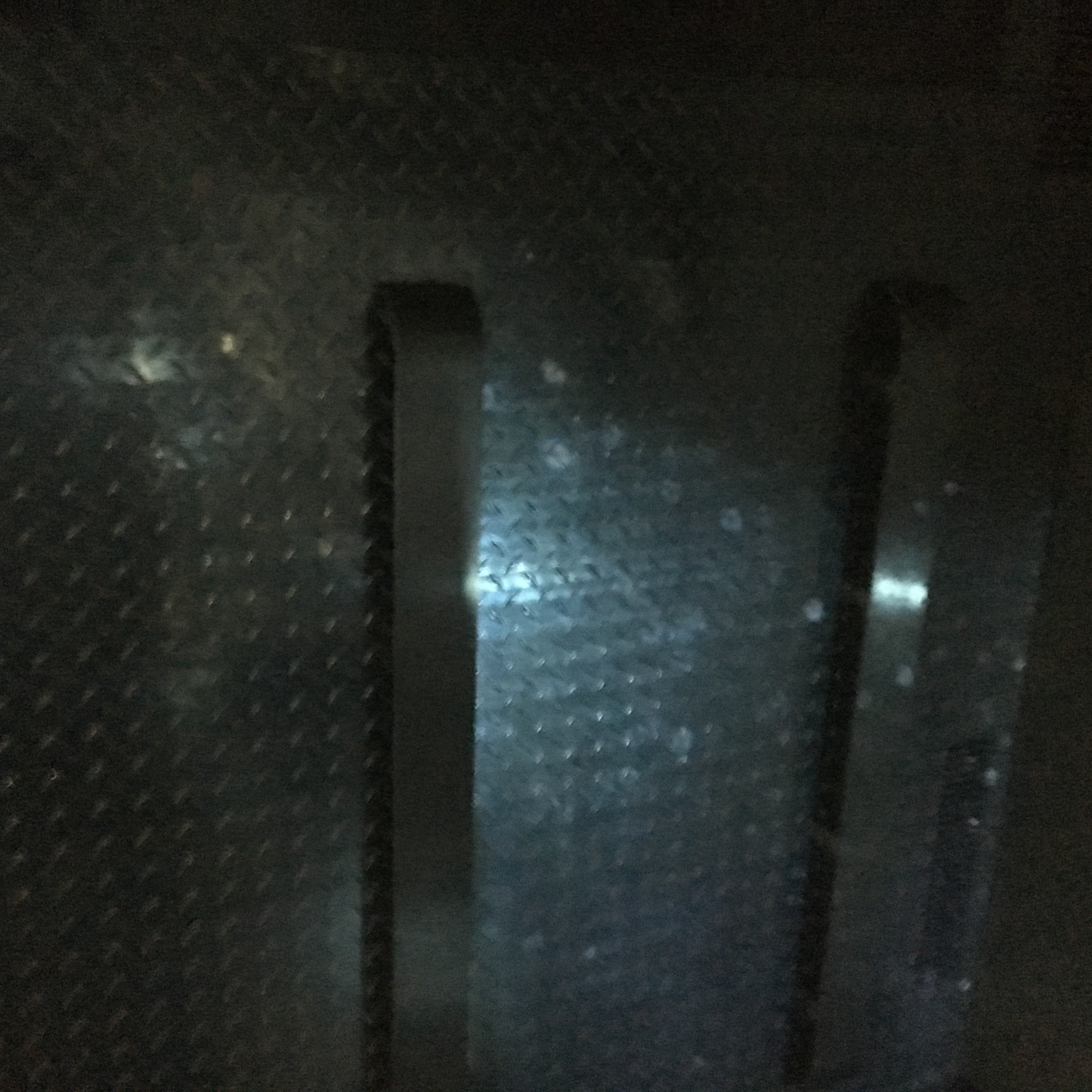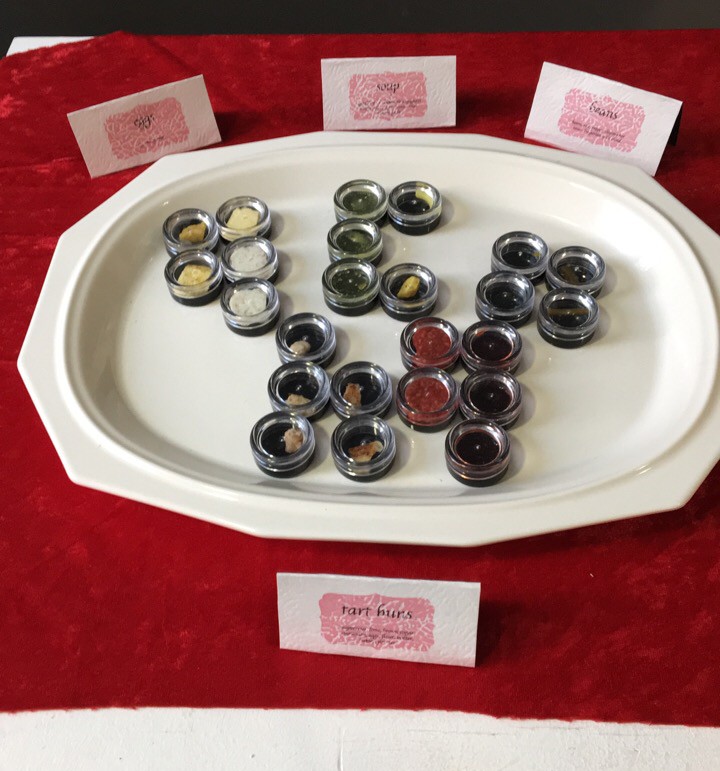Pros and Cons of Dying (and Not)
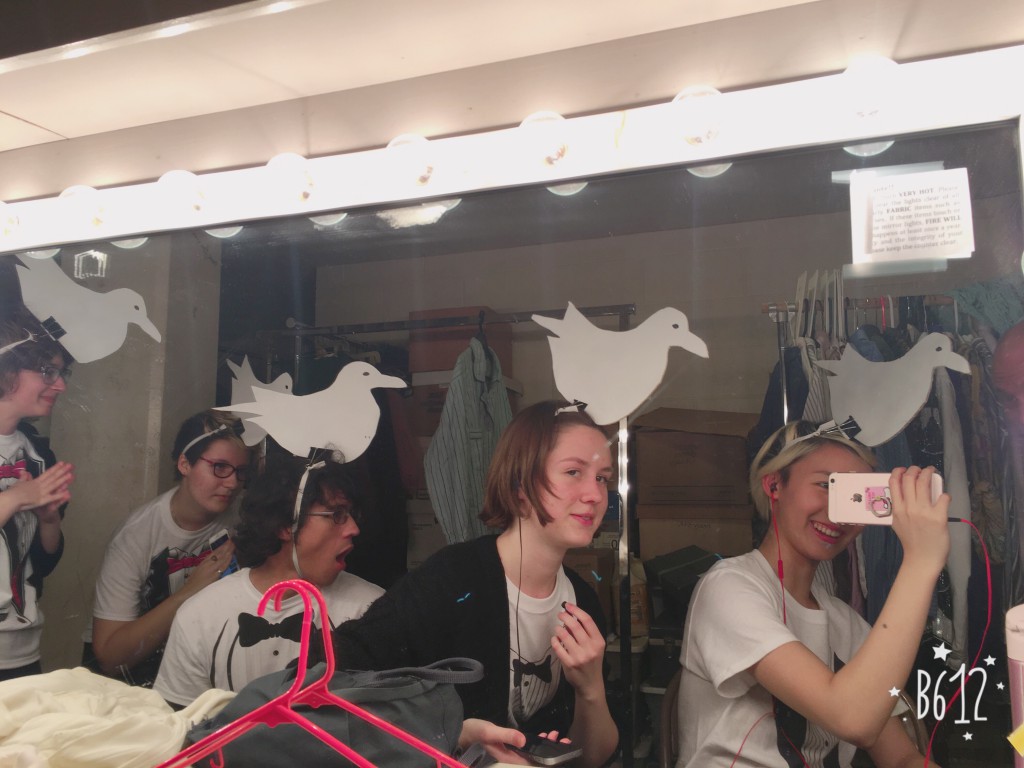
Pro: When I was bumped from a deeply desired psychology class, I stumbled upon New Genres: I Expect You to Die. I thought, great! The perfect class for me. I love New Things and the expectation that a class will kill me. I approached my don, Shahnaz Rouse, with my choices for alternative registration. Her only comment on this class was, “Angela? Oh, you’ll have fun.” Knowing Shahnaz, this meant that I would most certainly die. I set it for my first choice.
Con: I did not understand the entire syllabus or any part of what I was getting into, but assumed I would. Many peers and parents and miscellaneous acquaintances asked what this class entailed, and the best I could muster was “coding. Also James Bond. And theater?”
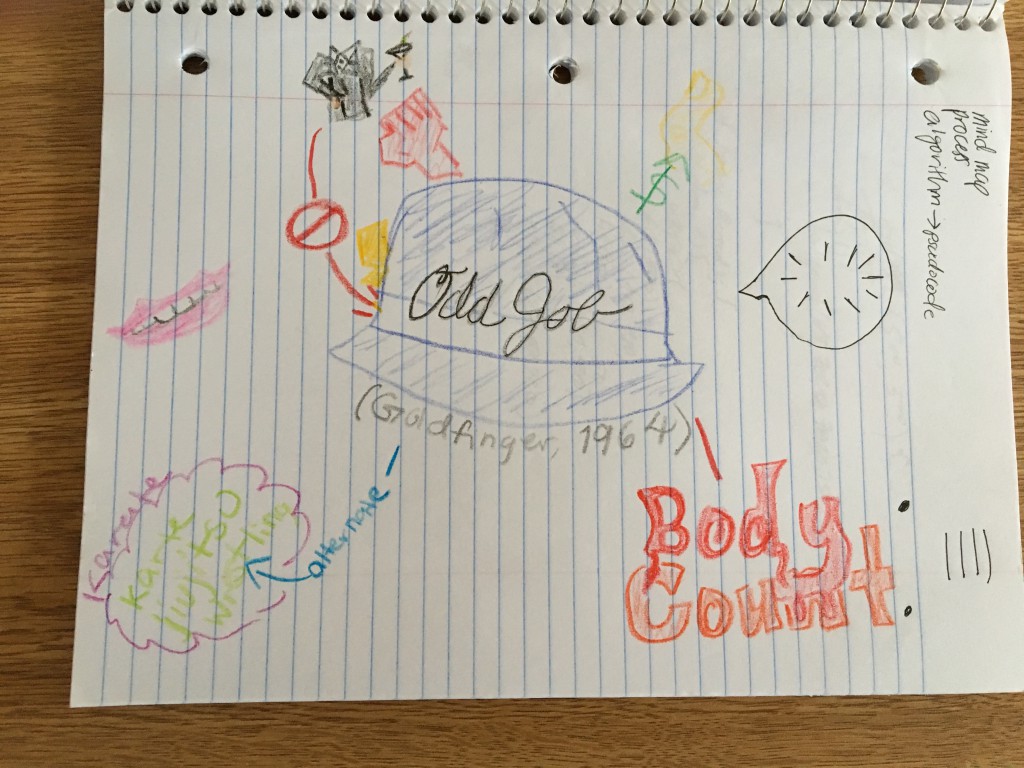
Pro: In 2013 I quit coding. In 2014 I quit theater. In 2016, I subjected myself to both simultaneously and hoped I would swim. I was extremely anxious for every class, but somehow myself and 20 others swam! Even when I missed two classes in a row, I managed, thanks to Angela’s advice that, at the time, sent the butterflies in stomach to full rage. “Just watch, you’ll figure it out.” Little did I know, that was an excellent summary of the entire class: this wasn’t about any sort of product or goal or anything tangible that could be easily quantified. I Expect You to Die was about the process. The primary process was learning. Learning to code, learning to move in meaningful ways, learning just how many ‘rules’ four college kids could break in an hour before presenting our beautiful abstraction to the class– I was terrified, and learning.
Con: At the end of class, David said that he would send out the rehearsal schedule. Suddenly I understood the syllabus. I had accidentally committed myself to a theater production at Sarah Lawrence College.
Pro: I loved rehearsal. There was something very pure about the work we constructed. I didn’t understand the class until our first rehearsal, when David asked us to walk around the stage and, together as a group, “die.” From that point on, I realized that I didn’t have to know what I was doing: we would figure it out together. This, in combination with a silly desperation to produce code that I was proud of, helped me to create We Expect You to Talk.
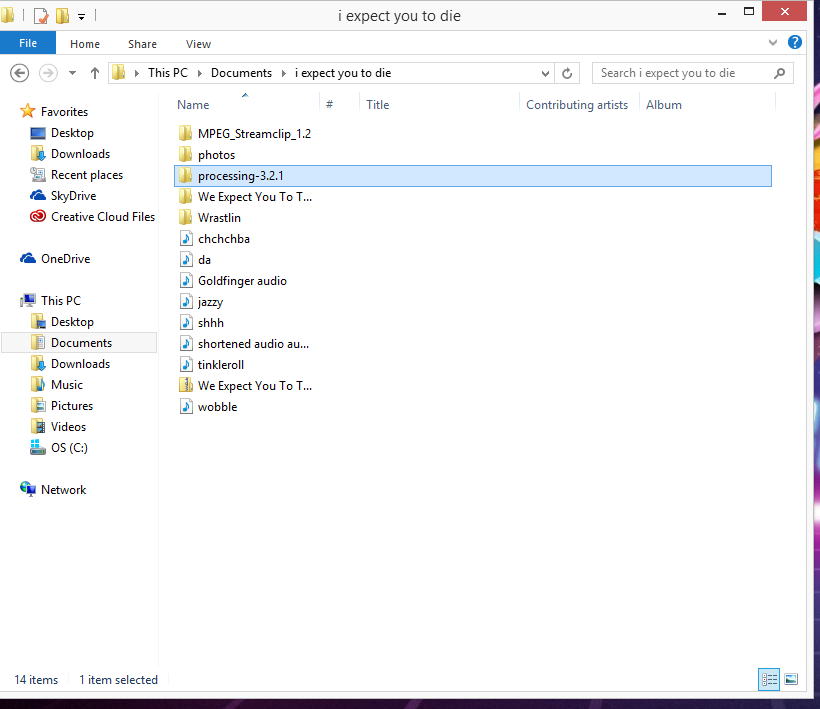 The script started as a simple dialogue, but then grew into what I referred to as “a bad sitcom,” complete with strange noises (see above audio files) in between. With over 200 lines written into the system, I was extremely proud of what I had done. I don’t think I would have pushed myself like this on my own, but every other component of the show felt so magnificent that I wanted to create in the same way. Even better, after presenting it to the group, I watched as my original idea developed into something more fun, better, and eventually a tool that we used to think about the show.
The script started as a simple dialogue, but then grew into what I referred to as “a bad sitcom,” complete with strange noises (see above audio files) in between. With over 200 lines written into the system, I was extremely proud of what I had done. I don’t think I would have pushed myself like this on my own, but every other component of the show felt so magnificent that I wanted to create in the same way. Even better, after presenting it to the group, I watched as my original idea developed into something more fun, better, and eventually a tool that we used to think about the show.
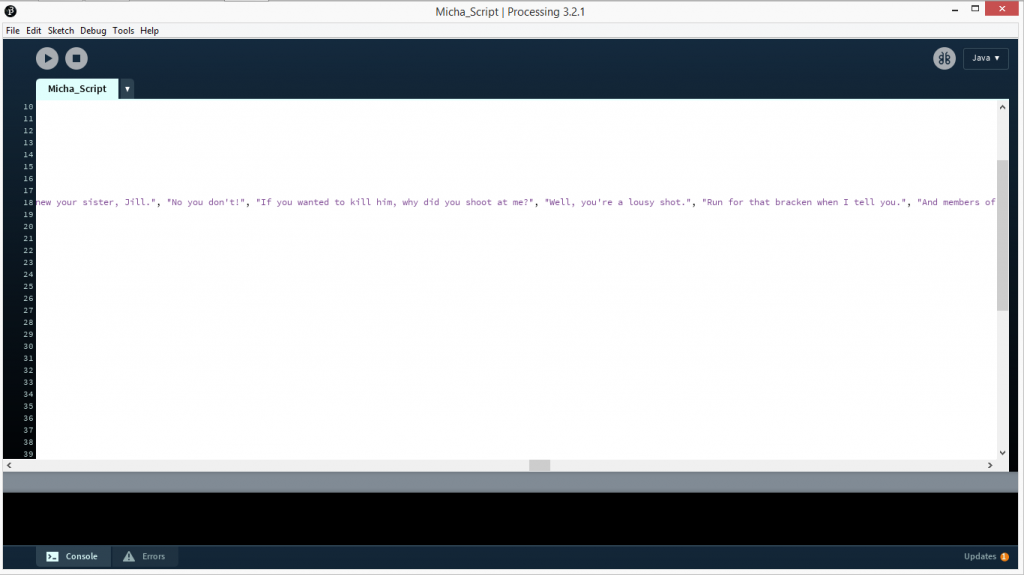
Con: We Expect You to Talk in its original form never made it into the show. This did not bother me in the slightest, as it seemed out of place with the show’s trajectory (and I still love my strange little code).
Pro: Several of the pieces that I worked on with other students did make it into the show. Every exercise and every scene David had us explore opened my mind in a different way. Between David’s encouraging face and Angela’s confident “why not”s, I found a space that I could truly explore and invent. Some nights I was a dancer, some a coding “expert,” some a folie artist. Every member of our class was as diversely useful and flexible as our out there ideas and not once did I think that my time went unvalued.
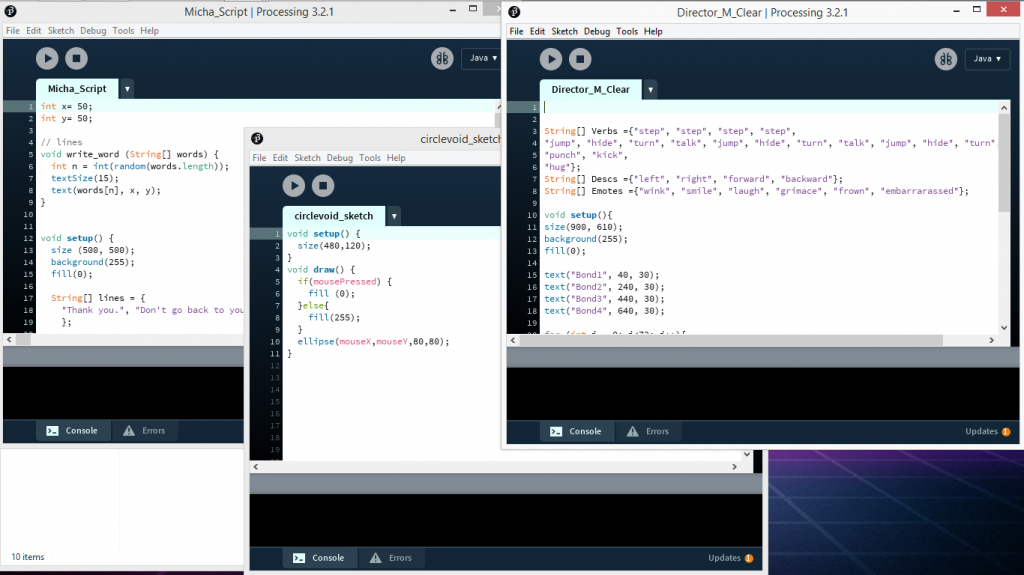
Con: Due to medical reasons, there was a significant portion of the pieces I couldn’t participate in for the show because they were too physical. Our dances and running and falling were so beautiful, but I couldn’t guarantee that my body would execute them safely.
Pro: That didn’t matter. Angela and David instead introduced me to my new home, the tech table. There I began my swift and terrifying education in projection and QLab. For those who are unfamiliar, QLab is a program that cues queues for sound, video, and picture. I soon fell in love with all the strange mapping, layering, and moving components across our expansive ‘stage.’ We began with one surface and expanded to many odd surfaces to experiment with our two projectors. An entirely new creative outlet was offered at the tech table. Although I still ended up ‘on stage’ for three scenes, my foray into the wild world of projection gave me a very particular joy.
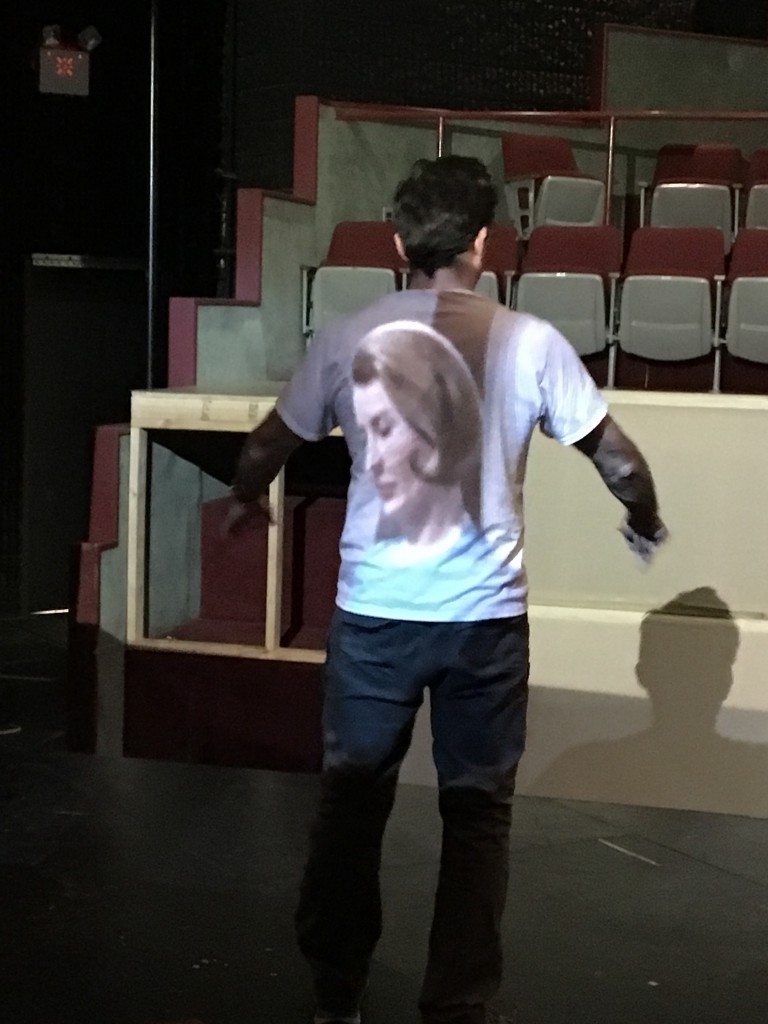
Con: By our 10 hour tech day rehearsal, the projectors and QLab were so strangely broken that we could only click and drag video to approximate where it should be on our stage.
Pro: Our incredible stage manager, Michelle Hernandez, and our tech expert Ti somehow had everything fixed and running perfectly by Monday. Over the course of the week and a half where the projections weren’t working, I also learned QLab and our projection maps much more intimately, to the point that we could run the show even without everything functioning. At no point in the semester did I stop and say “hey, I can handle this.” Part of I Expect You to Die was always staying on your toes and adapting to new directions. Whether it be a new stage direction, more clips to add to scenes, or even projecting a moving car across two thirds of the stage (thank you Ti!), Angela and David kept pushing us to further refine our piece as a group. Incredibly, we ended up with a show that had meaning, depth, and beautiful harmony between technology and human bodies.
Con: We still had to perform it.
(The Tech Table Pre-Show Pump Up, X Gon Give It to Ya by DMX)
Pro: Performing it, as it turns out, was the least scary part. Our four shows operated much like a group trust fall: yes, there were a million ways that the show could go horribly wrong. However, we had to trust that our entire team (Michelle, her assistant stage manager, sound tech, the runners, actors, and yes– tech table) would operate smoothly and together, always listening to each other and holding on tight. Between all four shows on all three nights, I think I breathed twice: once at the beginning, once at the end. Never have I witnessed such intense unity and composure as I did while watching our show. Every moment was terrifying, but that was a part of the thrill. Our show was 21 students on a boat with Angela and David at the helm, telling us to find a paddle. We used spoons, planks, and stove tops to bring us to a place where we felt that we could say, “this is it. This is what we are saying.”
Con: As we cleaned up our shoes and pants in the costume room Saturday night, it sunk in that this wild ride was over. There were hugs, well wishes, and gentle threats about not staying in touch. After the show, my formerly impossible weeks felt empty. Once you become a part of a group, a machine, an idea, it’s terribly hard to become an individual again. My brain was ripe with all sorts new ways of seeing that I had been taught and that I had exercised for weeks on end. Suddenly, my life was very normal.
Pro: We still had one more class.
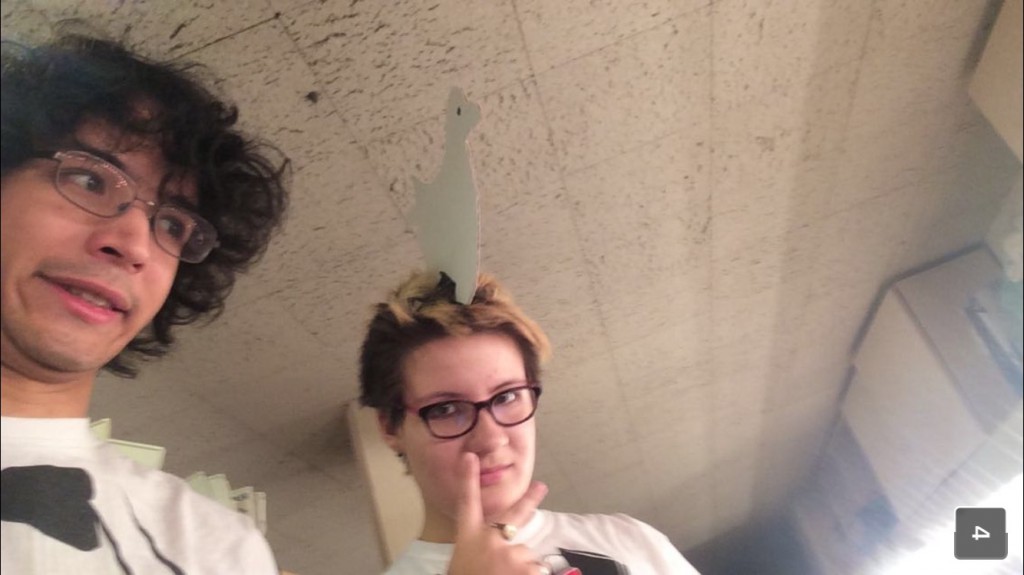
(Right) Me, Micha, ready to start a cardboard aviary
Our final class was two weeks from opening night, exactly. Somehow, those two weeks felt like two months. As each person stumbled into our room in the lowest floor of Heimbold they were greeted by smiles, hellos, and a few inside jokes that had developed during the show. It was a sad, sweet reunion that allowed us all to debrief the semester. There were talks of opening our own strange theater company and pursuing “weird theater” here at Sarah Lawrence. Perhaps our legacy of experimenting and playing will live on. Honestly, I am still unsure if I was in a theater production or a fever dream for the last month and have not fully processed either reality. Regardless of whether or not I constructed this entire fantasy in my mind, I loved every part of it, especially all the wonderful humans who made it happen. If you had told me last semester that I would be participating in the world’s greatest game, I probably would have laughed. I would likely laugh now as well, but for a different reason: now, I’m ready.
With Love,
Micha
